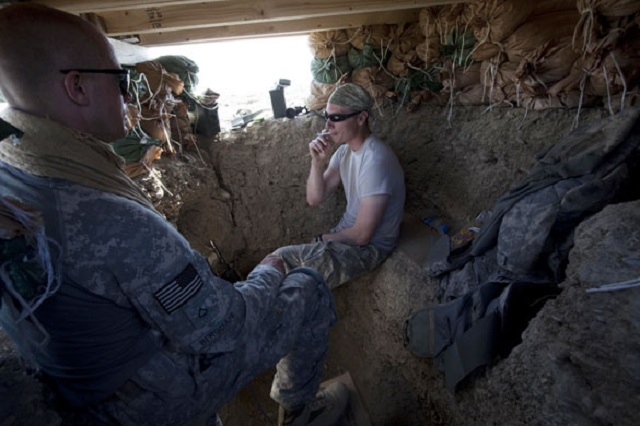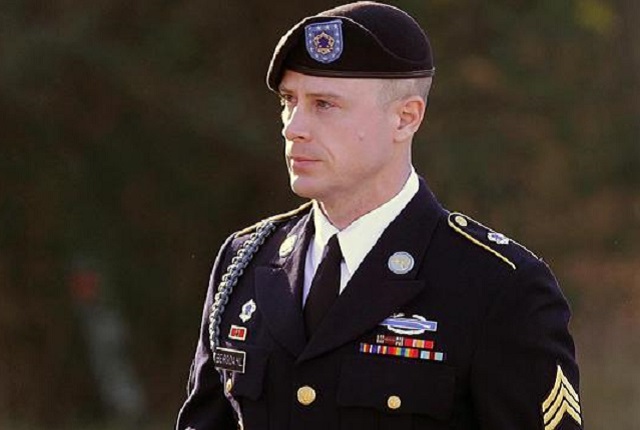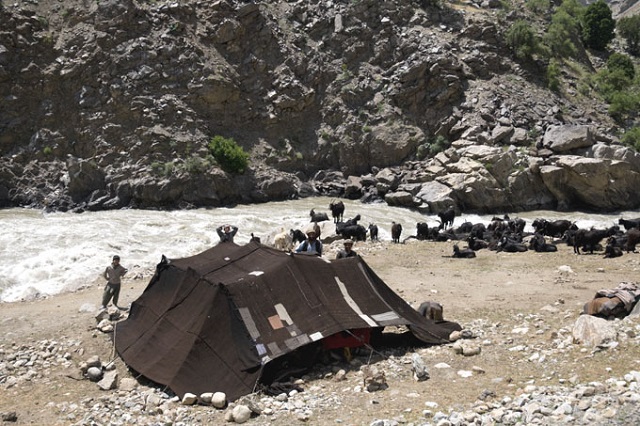Surprise! Sarah Koenig revealed at the end of this week’s Serial, “Hindsight, Part 1,” that the second part of the latest episode will be posted Friday. That certainly answers why episode seven was so short at 38 minutes.
What? Not only are we getting the podcast every two weeks, but the episodes are shorter? What the hell? So we’ll get double the Serial this week, perhaps because Koenig felt that telling the two sides of Bowe Bergdahl’s suitability for the Army deserved separate episodes.
During the first six episodes of Serial‘s season two, Koenig has tried to get into Bergdahl’s head and perhaps explain what factored into his decision to leave his post in Afghanistan. Some might view this as an attempt to make Bergdahl into a sympathetic figure, to portray the U.S. military and the war in Afghanistan as untenable situations that pushed a soldier to making a very bad choice. Consider the whole picture before labeling this guy a deserter and traitor.
But in “Hindsight, Part 1,” Koenig expresses doubt — or rather, shares that doubt with the audience for the first time. Screenwriter Mark Boal (developing a movie about Bergdahl) asks her if she thinks Bergdahl is lying. And there’s a long pause. If the answer was no, wouldn’t it come quickly?
Bergdahl’s story is that he left his base and intended to trek to another Army outpost, where he could explain his concerns about his unit’s leadership to a different set of superior officers who were preferably higher up the chain of command. What bugs Koenig about that most is that the Taliban says he was captured after wandering into a Kuchi tent (basically a nomadic tent out on the Afghan terrain). That doesn’t fit with Bergdahl’s contention that he was looking for the next closest Army base. Maybe he really was running away and looking for help.
Koenig says that she’s actually moved past that hang-up and believes it’s not enough to completely undercut Bergdahl’s account. But plenty of other soldiers aren’t buying his story, nor his reasoning. (One points out that he had five years to work on his explanation.) The majority of his platoon-mates didn’t have major problems with commanding officers. There were plenty of other contemporaries or superiors on a large base that he could have expressed his concerns to. However, the biggest problem with Bergdahl’s story, as one soldier puts it, is that he really only had two options: The U.S. Army or the Taliban. So where was he going to go?
It may not have been quite that simple, Koenig explains. Bergdahl had established relationships with Afghan police, often joining them for tea and meals. He was sometimes late for duty because he was fraternizing off-base. So it was easy for some to speculate and draw a straight line from Bergdahl abandoning his post to trying to escape with some Afghan police. There were reports of two police officers missing (though that was eventually wasn’t verified). Did one of them sell Bergdahl out to the Taliban?
Koenig makes it clear that she, Boal and Gen. Kenneth Dahl (who debriefed Bergdahl after he was released from captivity) all believe Bergdahl is telling the truth. But maybe it’s that he’s telling his version of the truth, without taking into considerations how others were seeing the same situation or how his actions might affect his mates. Is a person lying if he doesn’t really think that he’s lying?
But what Bergdahl’s actions may ultimately come down to is an upbringing that lacked any sort of real authority and the sort of interactions that would help a young man develop crucial social skills. Koenig speaks again with Kim Harrison, who was introduced in episode five as something of a surrogate mother figure for Bergdahl. She basically kick-started the search for Bergdahl after he went missing. Harrison and her daughter Kayla explain that Bergdahl acted as sort of a protector, going so far as to stash weapons (ice picks, medieval maces, etc.) around their Idaho tea bar in case something suddenly went down.

Photo Credit: Sean Smith for the Guardian
Kayla went on to talk about the unusual worldview that Bergdahl developed, how he became increasingly intolerant of what people would just let go while living their daily lives. He would essentially just sit in the corner of the tea bar and watch people, how they interacted with one another, how they handled certain situations. More than an anthropological study, it was like Bergdahl was taking notes for himself as to how he should handle himself in similar scenarios. Basically, he was a living endorsement for putting your children in daycare and school to develop social skills.
In the first episode of this season, Bergdahl admitted that he had some Jason Bourne-type fantasies about carrying out some kind of covert mission when he left his post. As it turns out, that wasn’t unusual for him. Bergdahl craved some kind of adventure, a life that would consistently present challenges that would test his manhood. His platoon-mates said he imagined becoming some kind of international mercenary. Harrison said he attempted to join the French Foreign Legion at one point, but eventually convinced him to join the Coast Guard because at least he would be helping people, rather than trying to hurt someone. Yet four months into his training, he had what can really only be termed as a psychological breakdown, fueled by constantly being yelled at and harshly ordered by superiors.
So take someone who never learned to respect authority, who lacked basic social skills and an understanding of everyday existence in contemporary culture, harbored fantasies of being some kind of mountain adventurer or international super-soldier, and then put him in the Army. Oh, and the Army either didn’t know or chose to ignore how and why he was discharged from the Coast Guard during training. Hey, they needed all the recruits they could get once the troop surge in Afghanistan was ordered.
How was this supposed to turn out well? And should it really be a surprise that Bergdahl ended up taking drastic action when things didn’t go his way?
You can read all of our Serial recaps here.









Comments are closed.